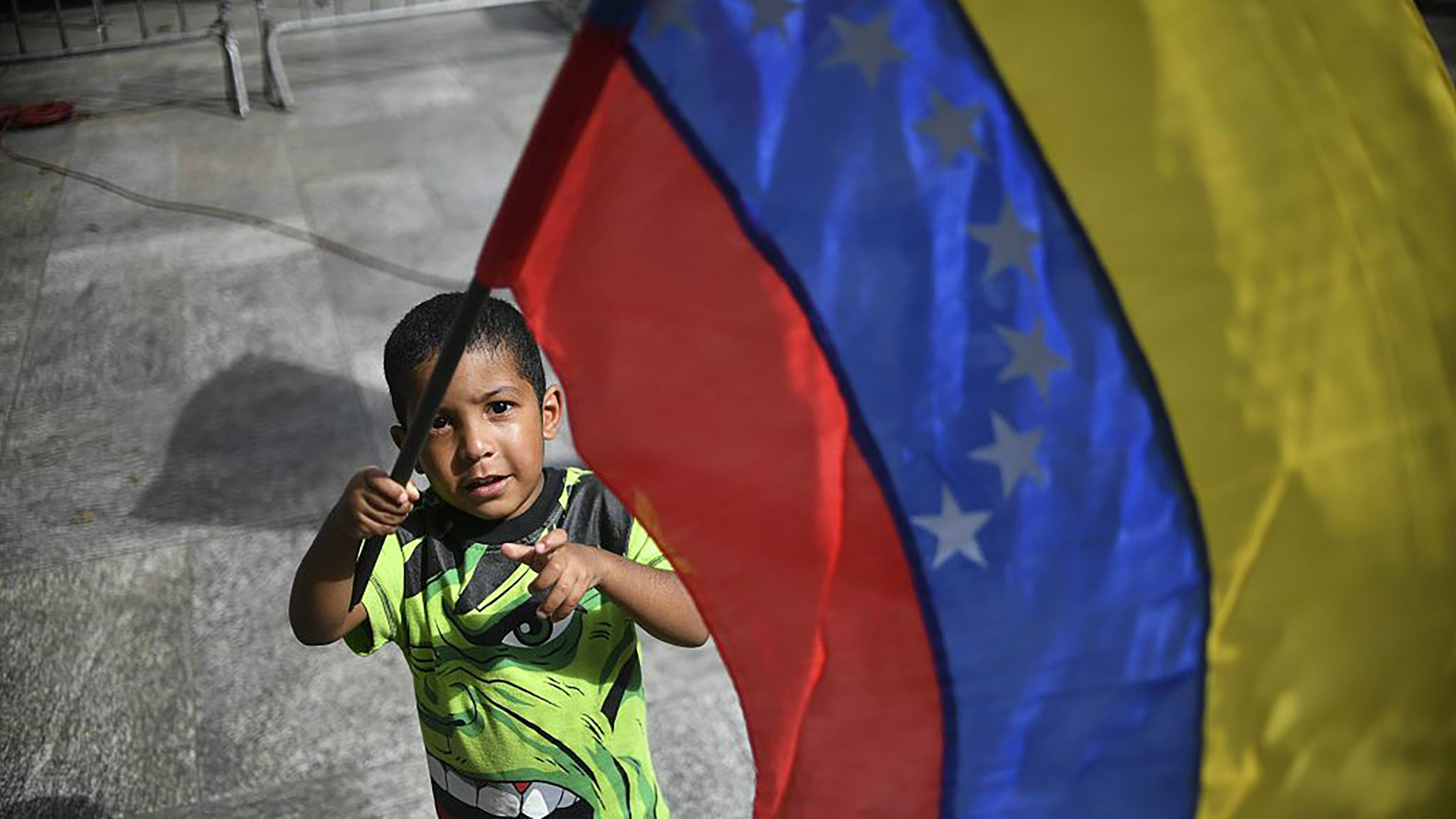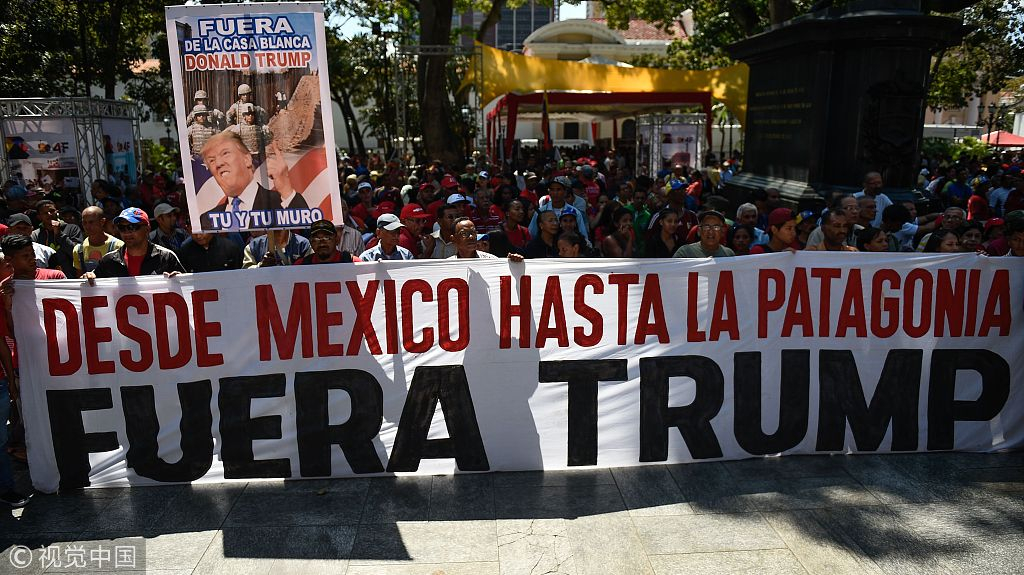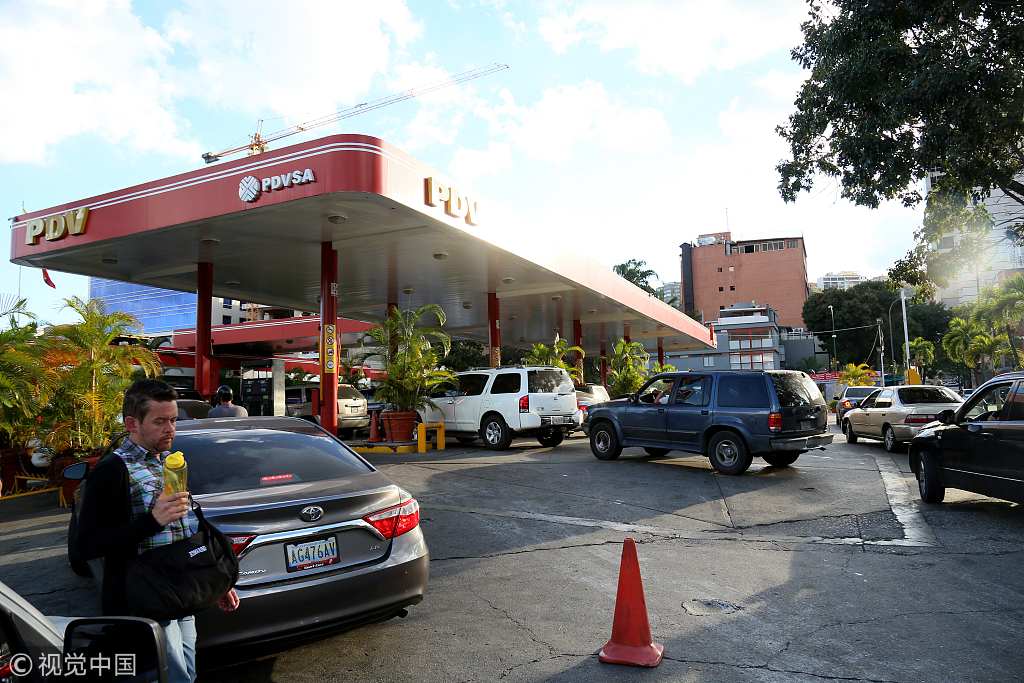
TV Show
11:58, 07-Feb-2019
The Heat: What does Venezuela really need?
The Heat
01:22

The significant challenges facing Venezuelan President Nicolás Maduro's government are the parliamentary election and the humanitarian aid issue. Maduro is facing challenges on multiple fronts, including massive anti-government demonstrations, the defection of a top general and a growing list of countries calling for new elections or for him to step aside.
The situation is polarized in Venezuela - different groups showed their support to either Maduro or Juan Guaidó. Yet, most of the military have reaffirmed their loyalty to Maduro. Rey Gomez, the news anchor with TeleSur, emphasizes the significance of the military allegiance at the 200th anniversary of the Angostura Address.
Francisco Marquez, chief of staff to Juan Guaidó's representative to the Organization of American States, defies the legitimacy of Maduro and acknowledges the interim president Guaidó. He believes that military and repression is all that left with the Maduro regime and think that Guaidóo will eventually bring free and fair election.
The domestic political environment suggests that the problem is much more complicated. Max Blumenthal, the bestselling author, journalist and the founder and editor of grayzoneproject.com, refers to a poll in Venezuela that shows 80 percent of the Venezuelan people reject any kind of U.S. intervention or sanctions. The country apparently does not want to have a civil war, becoming Libya or Syria.

Pro-government activists hold a banner reading "From Mexico to Patagonia, Trump Out" during a commemoration "National Dignity Day," at Bolivar Square in Caracas, February 4, 2019. /VCG Photo
Pro-government activists hold a banner reading "From Mexico to Patagonia, Trump Out" during a commemoration "National Dignity Day," at Bolivar Square in Caracas, February 4, 2019. /VCG Photo
Maria Elvira Salazar, the award-winning journalist, just finished an interview with Maduro, points out that Maduro showed a strong willingness of negotiation. According to Maria, Maduro is in a desperate situation. Maduro does not have enough resources to satisfy the people. She further criticizes the “unjust” process of the previous election and recognizes Juan Guaidó as the interim president based on the rights of the National Assembly to fill a power vacuum.
Rey Gomez, on the other hand, indicates that Juan Guaidó is just a character in the trend of right-wing movement before the self-proclaimed the presidency. He is similar to the previous “leaders of opposition” that is unable to achieve the real objective of leading the country out of a crisis. The humanitarian aid that Guaidó proposed was used as a tactic to ignite military disputes instead of practical assistance to the Venezuelan people.
One of the significant issues that linked with the crisis is the oil investment in Venezuela. Francisco does not believe that the primary target of the U.S. support for the interim government is oil investments. Maria also thinks that oil benefits might not be the U.S. main interest — the U.S. had the chance to join the oil industry and invested in PDVSA (Venezuelan State-owned oil company) ever since the Bolivarian Revolution. It is PDVSA that should take the responsibility of a technical stagnation and degeneration.

Cars queue to refill their tanks at a Petroleos de Venezuela SA (PDVSA) gas station in Caracas on January 30, 2019 in Caracas, Venezuela. /VCG Photo
Cars queue to refill their tanks at a Petroleos de Venezuela SA (PDVSA) gas station in Caracas on January 30, 2019 in Caracas, Venezuela. /VCG Photo
Max and Rey bear no agreement on the oil problem. Max indicates that the oil agenda has been an apparent reason that the U.S. is considering the issue. Not only John Bolton but also Marco Rubio had expressed in public cases that the oil investment in Venezuela and privatization of the oil rigs will bring thousands of jobs to the United States. And this is written in the transitional law in the interim government, which makes the connection more obvious. Rey refuses to blame the Venezuelan economic failure on endogenous factors but insists that the U.S. blockade significantly hurt the economy.
From the intense debates over the Venezuelan crisis, the Venezuelan voice seems to have been submerged by all parties that have their stakes in Venezuela. Whether Venezuela is now under tyranny or a social democratic regime, Whether the U.S. has its interests mainly on the resources or the promotion of democracy - these topics remain debatable. Yet, out of the high politics, the current situation in Venezuela and the people's political wills are often neglected. What Venezuela needs the most may not be regime change, but new patterns of development that can dispel the natural resource curse from the oil reserve.
(If you want to contribute and have specific expertise, please contact us at opinions@cgtn.com)

SITEMAP
Copyright © 2018 CGTN. Beijing ICP prepared NO.16065310-3
Copyright © 2018 CGTN. Beijing ICP prepared NO.16065310-3